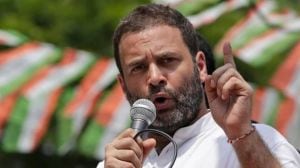Budget 2004: A Financial Planning Perspective
The first page of the budget speech says – “If we bring thought and passion to our Governance and walk the path of honor and coura...

The first page of the budget speech says – “If we bring thought and passion to our Governance and walk the path of honor and courage, we can make the future happens and this century will be India’s century.”
The Finance Minster, P Chidambaram has taken this approach demonstrating his commitment to the UPA Government’s CMP and has also shown continuity of the reform process by taking quite a few bold decisions especially in the FDI front in this budget. There could have been more landmark decisions; however he has chosen to move carefully but certainly with an optimistic and progressive approach. It would be difficult to comment on specifics till we get the fine print resolved. However, the budget does not indicate any policy statement to regularise the financial planning industry that the Association had presented. But by not including service tax on mutual funds distribution he has accepted one of our recommendations and we would continue to pursue the matter further on professionalising the financial planning in the interest of investors with the Ministry of Finance.
This means that for some time at least there may not be talk of increment of expense ratio on mutual funds causing higher cost to the investors.
On the direct tax side the changes in the capital gains tax on security trading are significant. The 15 basis point turnover tax (only for buyers) is probably more than what market would have expected. On the flip side the capital gains tax on short term trades have been reduced to 10 per cent. The stock market participants are still not clear of the implications of the turnover tax. Also the Finance Minister has not specified whether provision related to capital gains tax and turnover tax would apply in case of units of mutual funds. Though the dividend distribution tax on equity mutual funds continues to remain nil (as well as dividends in the hands of the investors), however on the increment (20 per cent) of dividend distribution tax in case of debt mutual funds for institutional investors (continuing 12.5 per cent tax incase of individual investors) the mutual funds industry may be disappointed.
This is very important call that needs to be taken up with the Ministry of Finance to request the application of new capital gain tax rules on the transactions of mutual funds also. We hope that it happens – else investors may want to invest directly as well. (Even to maintain the standards, the fund houses will have to out perform the indices by at least 20 per cent). If this happens then will the turnover tax also be applicable on mutual funds is not known, and if it doesn’t one of the options could be that units may be traded on the exchanges, which may turn out to be good for the investors as well as the industry. One of the major problems that fund managers face today is high pressure of performance inspite of high turnover especially in case of open ended schemes. This may give a good opportunity to establish closed ended schemes which may be traded on the exchanges.
Now an individual earning up to Rs 1 lakh is exempted from income tax. This is boon to over 1.4 crore investors who will now have approximately couple of more thousands with him. If properly saved in right manner it could yield better results for him for the future. But on the flip side if the income is even marginally more than Rs 1 lakh then unfortunately he will be taxed even more than his increment of income over Rs 1 lakh.
This is not just, and the Ministry of Finance should attempt to remove this anomaly which is unfair. Also unfortunately for an individual having taxable income above Rs 1 lakh, there is no change in either the tax slabs nor does the Budget offer any new savings instruments. Not changing the IT slab is a middle path chosen as increment from Rs 5 lakh upward would have been highly appreciated.
But senior citizens can take heart with the fact that a new bond has been introduced at 9 per cent interest per annum replacing the Varishth Bima Yojna yielding the same interest rate. Also people who have invested in other instruments like PPF, RBI Bonds, NSC, KVP, and pensions funds, need not lose sleep. Interest rates remain unchanged which is a pragmatic step.
A 2 per cent education cess on tax if effectively utilized as projected may yield positive result.
Meanwhile one needs to record details on all transactions (which may not be necessarily large in nature – above Rs 50,000 plus) accurately for the purpose of filing returns. Secondly gifts received from people other than relatives over Rs 25,000 will be included as income which is a reasonable step to plug tax loopholes. And withdrawal of exemption on interest income for NRIs for NRE and FCNR account is reasonable. Investors should take note of the same.
The Finance Minster has been wanting up to be called the ‘inster of Investments’ and turn India from a country of savers to country of investors, which he has demonstrated by setting up the Investment Commission which could be a very progressive step. We would be happy if the proposed Investment Commission could also include mandate to seek more investments into the capital market for domestic investors as well along with other related instruments. In short, encourage financial planning along with establishing progressive manifesto to conduct investor education and protection as well.
So, the financial plan of an individual need not be altered in any radical manner apart from individuals with an income up to Rs 1 lakh, who need to decide whether to invest or spend their new windfall.
Photos




- 01
- 02
- 03
- 04
- 05



























